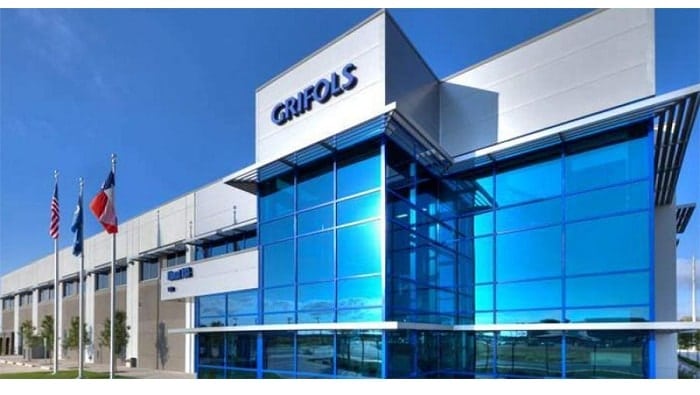The European Investment Bank (EIB) and Grifols signed an Euros 85 million loan to support the company’s R+D+i initiatives focused on investigating new indications for plasma-derived protein therapies to treat rare and chronic diseases. The agreement is backed by the European Fund for Strategic Investments (EFSI). The EFSI is the central pillar of the Investment Plan for Europe, commonly known as the “Juncker Plan”.
The loan offers several favorable financial conditions, including a fixed interest rate, maturity date in 2027 and a two-year grace period.
The loan agreement will strengthen Grifols research efforts aimed at improving the health and quality of life of patients, as well as drive innovation in the medical-research field throughout the European Union. Moreover, it will contribute to fostering high-skill employment and bioscientific research within the network of universities, hospitals and research centers that collaborate with Grifols.
The agreement represents the second EIB loan conceded to Grifols under the umbrella of the Investment Plan for Europe, following the first one signed in 2015 when Grifols became one of the first European companies to receive funding from the Juncker Plan. With this second loan, the company builds on its positive initial experience and consolidates its relationship with the institution, which it highly values as a complementary source of funding for its
R+D+i projects.
As a leading-edge innovator in the global healthcare sector, Grifols channels substantial resources toward both in-house and external R+D+i projects. As of September 30, 2017, the company had allocated Euros 201.6 million in net investments in R+D+i, denoting a 23.8% increase compared to the same period last year. This upward trend in research spending is a clear testament to the company’s efforts in this area.
About the European Investment Bank and the “Juncker Plan”
The European Investment Bank (EIB) is the long-term lending institution of the European Union owned by its Member States. It makes long-term financing available for sound investments to contribute towards EU policy goals.
The Investment Plan for Europe, known as the “Juncker Plan,” is one of the European Commission’s top priorities. It centers its efforts on promoting investments that spur job creation and economic growth through a more intelligent use of new and existing financial resources. At the same time, it aims to eliminate investment obstacles, and offer better visibility and technical assistance to EU investment projects.
The European Fund for Strategic Investments (EFSI) is the main pillar of the “Juncker Plan.” By offering guarantees for first losses, the EFSI enables the EIB to increase its investments in projects that traditionally carry a higher degree of risk. The EFSI’s efforts have already translated into tangible results. According to forecasts, the projects and agreements approved for funding within the EFSI framework will mobilize more than Euros 250 billion in investments, and support the approximately 528,000 SMEs currently operating in the 28 Member States.



















